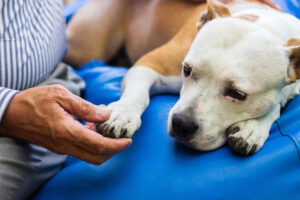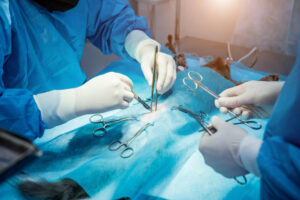Are you preparing for your pet’s upcoming surgery? Perhaps you’re wondering about the necessary steps for pre-and post-surgery care. Being attentive to these guidelines ensures that the surgery becomes a minor disruption in your pet’s routine rather than a major ordeal.
Before the Surgery:

Cease Food Intake:
Before surgery, it’s crucial to withhold food intake for your pet. Allowing your dog or cat to eat before the procedure can lead to complications such as infections or respiratory distress syndrome if vomiting occurs. The timing of when your pet should stop eating will depend on the scheduled surgery time. Generally, pets can still drink water leading up to the surgery. However, specific cases such as diabetic pets or young animals might require light meals with veterinarian approval. Remember not to feed your pet unless instructed to do so.
Prepare Leash or Carrier:
Don’t wait until the last minute to locate your pet’s leash or carrier on the morning of surgery. Finding these items the day before will help ease the morning rush. For cats who resist entering carriers, allocate extra time for gentle coaxing.
Pack Essentials:
Consult your veterinarian about bringing your pet’s medications and a small supply of familiar food. While the clinic may provide food, sudden dietary changes can upset your pet’s stomach.
Early Drop-Off:
Plan to drop off your pet early on the day of surgery to facilitate necessary procedures such as a physical examination, X-rays, blood tests, IV fluid administration, and anesthesia preparation.
After the Surgery:

Create a Comfortable Recovery Space:
Upon returning home, ensure your pet has a comfortable area to recuperate from surgery and anesthesia effects. Place their bed or crate on the ground floor, away from high-traffic areas. If you have young children, consider setting up a quiet space to minimize disturbances.
Limit Activity:
Despite feeling groggy, your pet might attempt to resume normal activities. Prevent access to stairs or other obstacles until the anesthesia fully wears off. Discourage excessive running or jumping, and if needed, confine your pet in a crate for enforced rest.
Facilitate Bathroom Trips:
Pets may need frequent bathroom breaks post-surgery due to administered fluids. Take your dog outside regularly and ensure easy access to a cat litter box.
Adhere to the Medication Schedule:
If your pet is prescribed antibiotics or other medications, adhere strictly to dosage instructions and schedules to promote a smooth recovery.
At Aurora Pet Vet, we prioritize ensuring a positive surgical experience for your beloved companion. Feel free to reach out if you have any queries regarding your pet’s surgery or general health concerns. Your pet’s well-being is our utmost concern.



